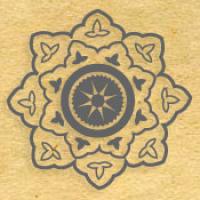Photo Exhibition and Documentary “The Campers: Micro-Cosmopolitanism of the Refugee’s World”
Opening the exhibition: 20 November 2016 (Sun) at 4:30 pm
Closing the exhibition: 27 November 2016 (Sun) at 6:30 pm

Long before Thailand became a magnet for labor migration in the Greater Mekong Sub-region, it was the main destination for flows spurred by conflict and war. Yet, Thailand does not subscribe to international refugee conventions and does not formally recognize refugees. So-called displaced persons from Myanmar are placed in camps near the border the first of which was “temporarily” built in Tak Province in 1984 with other located in Mae Hong Son, Kanchanaburi and Ratchaburi provinces. In the camps de facto refugees are protected from arrest, but without freedom to move or work. Outside of the camps, they may have more freedom, but be exposed to even less legal recognition and more risks of abuses and deportation.
This borderline situation in both symbolic and physical terms is the focus of the collaboration of SEA Junction and the Center for ASEAN Studies of Chiang Mai University (CAS) entitled “The Campers: Micro-Cosmopolitanism of the Refugee’s World”, consisting of a photo exhibition and documentary screening and related discussions.
The photo exhibition on 20-27 November at SEA Junction is part of field research conducted in between 2011 and 2015 on displaced persons from Burma, including Karen and Rohingya in and outside of the refugee camp by the anthropologists cum photographers, Samak Kosem and Kunnawut Boonreak.
The opening event will take place on 4.30-6.30PM on 20 November 2016 at SEA Junction and will include a panel by the photographers, art lecturer and artist Nipan Oranniwesn (Visual Arts Department, School of Fine and Applied Arts, Bangkok University) and a resource person from the migrant community (tentative) as well as the screening of the documentary “Michael’s” by again Kunnawut Boonreak.
The closing event is scheduled for 4.30-6.30PM on 27 November 2016 also at SEA Junction and will feature a more in-depth conversation with Samak Kosem.
The photos show the economic and religious dimensions of life in the camps of Mae La, Nu Poe and Umpiem, by contrasting the statelessness of refugees inside and outside the camps with the transnationality of their networks. In their precarity and confined space, refugees strive for better livelihoods and more hopeful lives.
Within this context, the documentary examines the lives of ‘Michael Right’ and Yameen ‘Michael Muhammad’, two Rohingya men who have struggled with issues of citizenship and identity while negotiating everyday struggles as an internally displaced person(s). Their story takes place in the heart of Mae Sot and Umpiem Mai Refugee Camp. The two Michaels are both Rohingya but come from different socioeconomic backgrounds. By juxtaposing their two lives, Boonreak seeks to examine how their socioeconomic status affects issues of citizenship and identity. While citizenship brings one a life outside the camps fences, the other tries to acquire citizenship from inside the refugee camp. Both have attempted to maintain their Rohingya identity. Each Michael seeks an ‘identity’ that others will accept. Even with their shared religious identity, that of being a Rohingya Muslim, their socioeconomic status divides them (for the official trailer see https://www.youtube.com/watch?v=PF9v0voM2dg).
The photos and the documentary were partly supported by The Integration in Southeast Asia: Trajectories of Inclusion, Dynamics of Exclusion (SEATIDE) and the Southeast Asia Border Research Society (SEABORS).
Organizers:
SEA Junction — OUR venue to connect on Southeast Asia (see www.seajunction.org)
CAS — The Center for ASEAN Studies of Chiang Mai University for understanding of ASEAN connectivity and “ASEAN from below”. (see https://www.aseancmu.com)

